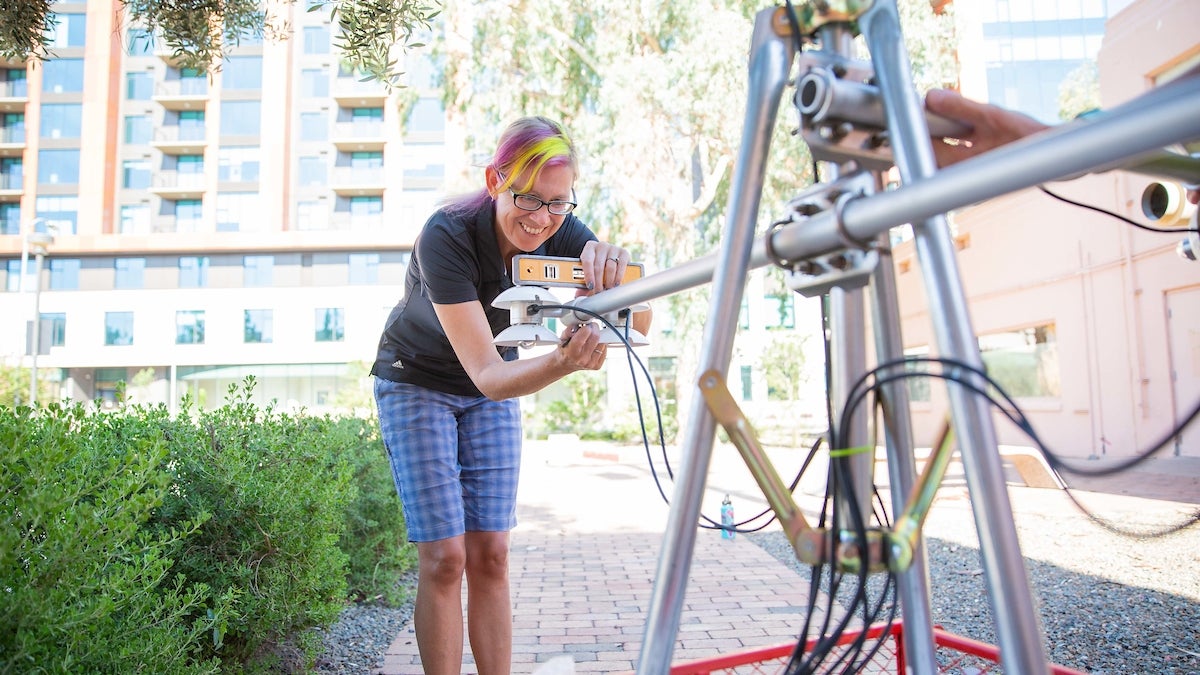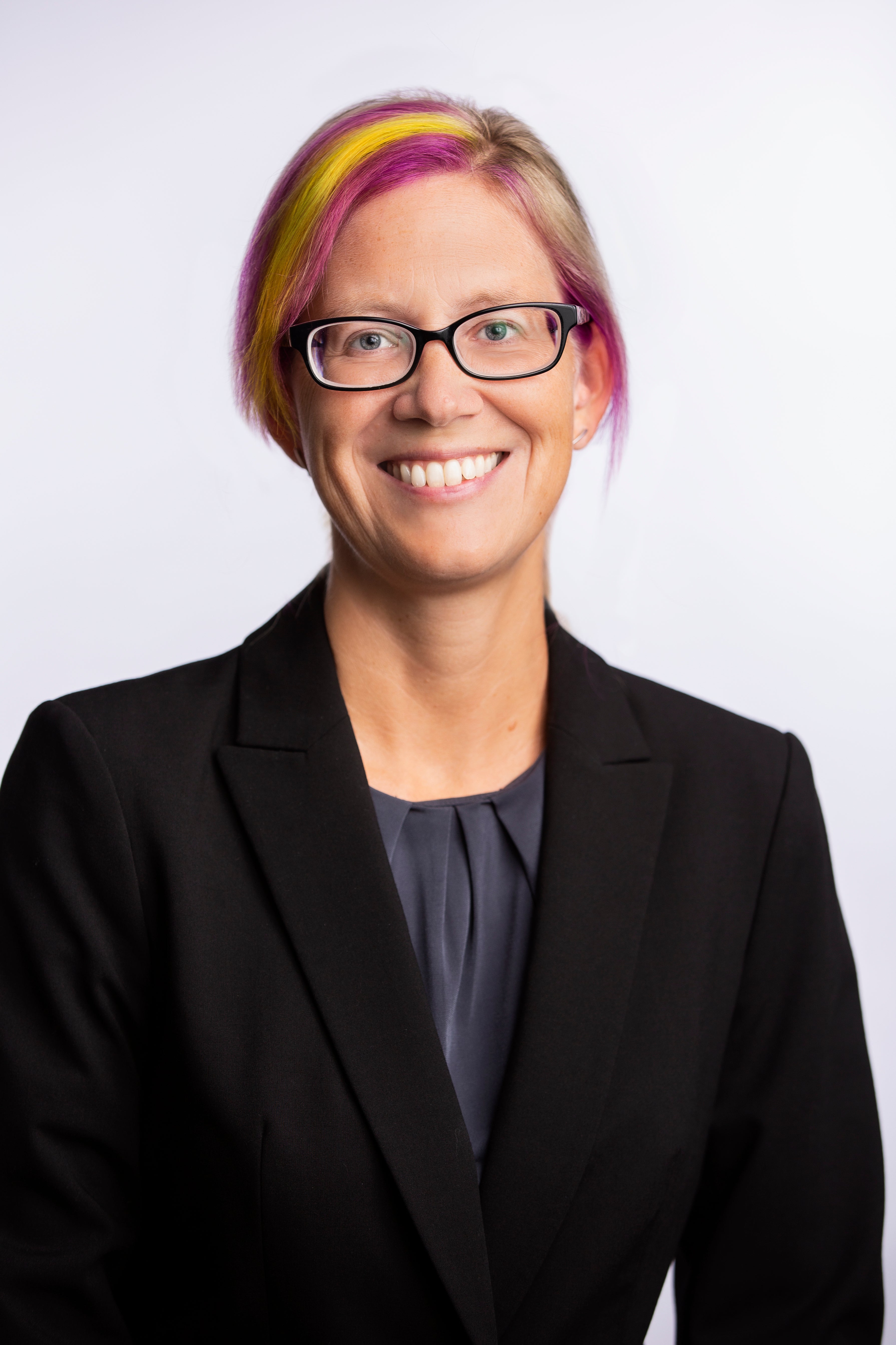ASU professor chosen to lead global urban climate research organization

This summer, the sweltering heat that swept across Europe contributed to thousands of deaths. In Pakistan, catastrophic flooding displaced millions of people and put a third of the country under water. And in the Western United States, more than 50 million people fell under extreme heat alerts, yet again, breaking historic heat records.
Across the globe, catastrophic climate events are becoming more and more severe and frequent.
In efforts to find solutions, researchers around the world are working to better understand both how urban communities are impacted by severe weather events and how our urban environments themselves influence weather hazards and even enhance those hazards.

Ariane Middel
Ariane Middel, an Arizona State University assistant professor in the School of Arts, Media and Engineering, part of the Herberger Institute for Design and the Arts, and the School of Computing and Augmented Intelligence, part of the Ira A. Fulton Schools of Engineering, was recently chosen as the president of the leading global organization tackling these challenges focused on urban climate science and scholarship.
Middel was elected the seventh president of the International Association for Urban Climate (IAUC) and will guide the organization for a four-year term from 2022–26.
“We are in this climate crisis right now, and with this backdrop, the IAUC is more important than ever,” Middel said. “The organization's work deals with how cities interact with the atmosphere and, in a way, how cities create their own climate.”
With more than 1,000 members worldwide, IAUC brings together a diverse community of researchers including geographers, atmospheric scientists, health scientists, architects, engineers, computer scientists and urban planners.
The association members advance research across key areas of urban climate, including: urban heat islands, air quality, remote sensing of surface characteristics to heat mitigation, human-biometeorology, thermal comfort, and climate modeling and observations at various scales.
“It's a very diverse community that embraces multidisciplinarity to solve these problems that one discipline alone could never solve,” said Middel, whose research involves studying how people experience heat at micro levels. “We have these grand urban challenges and I think that positions the IAUC well to see what can be done and to find solutions to these problems.”
At ASU, Middel also directs the SHaDE Lab and serves on the faculty leadership team of ASU’s Urban Climate Research Center, which, composed of nearly 40 ASU faculty across eight schools, is a hub of applied urban climate projects and impactful research.
“We have a large group of people at ASU that are experts in various facets of urban climate,” Middel said. “Because Phoenix is at the forefront of the heat problem, we’re well positioned to find solutions. We are a living laboratory and can test heat mitigation strategies and implementations and see what works best and what doesn't work.”
For Middel, to be serving as president of IAUC and leading an organization that has had a significant influence on her academic career, she says, “is a dream come true.”
“I joined this organization as a postdoc in 2009 and the urban climate community has helped me so much,” Middel said. “Back then, it was in finding mentors, then it was in finding collaborators and now it’s finding students. I've met a lot of people in this field through IAUC.
“It's a great honor and I feel grateful and humbled to be elected in this role.”
Top image: Ariane Middel on ASU's Tempe campus recording shade temperatures on the morning of Monday, June 28, 2021. Photo by Deanna Dent/Arizona State University
More Environment and sustainability

Saving the environment to save ourselves
Saving the environment.At Arizona State University, that's not just a trendy slogan. From water insecurity to wildfire awareness to cleaning pollutants in urban fishing waterways, ASU is…

A sea change regarding our ocean
By Marshall Terrill and Joe Rojas-BurkeThe ocean matters more than most of us may realize.Our seas offer soothing scenes for millions of vacationers. They provide seafood for our tables. They are a…

'Earth Day Amplified' promotes power of collective action
Everybody loves the concept of sustainability. They want to do their part, and the chance to say they’ve contributed to the well-being our of planet.But what does that actually mean?Arizona State…

